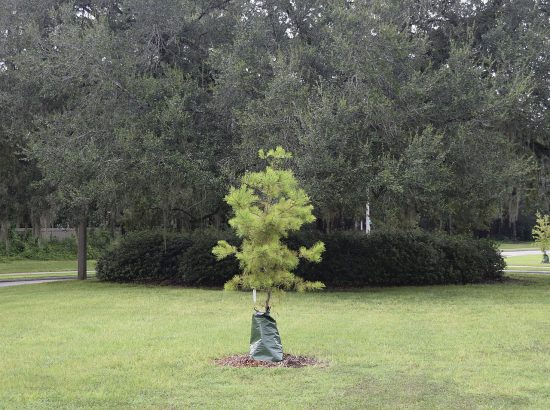
Lone Tree, Thomas Pereira 2020
Do those of us who have rejected traditional lawn-focused front gardens in favor of edible or perennial alternatives need to check our privilege? It’s not entirely that crazy a question.
While I understand and sympathize with Susan’s consternation over an academic assignment that seemed to turn all the good we’re trying to do with gardening upside down, what I am less comfortable with is the kneejerk trashing of diversity, equity and inclusion policies that it provoked among some of her commenters.
For many people, DEI comprises the three most hated letters in the alphabet. It’s like “politically correct” was in the 1990s. But just as I didn’t go along then, I am not going along with the demonization of social justice now. DEI policies are needed.
First, the U.S. has the reality of 1776-1865. Then there are successive waves of discriminatory practice that not only continue, but have left behind them damage that will take generations to fully heal. If ever.
I live in a poor city where these aftereffects could not be more obvious. The segregation that resulted on Buffalo’s East Side from redlining and covenants made it possible for a racist maniac to pinpoint where he could massacre the most Black people in one spot on May 14, 2022.
In the neighborhoods that surround where that tragedy took place, there are no emerald lawns. And there are very very few front gardens planted with edible or perennials (native or otherwise).
Rather, front yards are weedy patches of turfgrass, almost always kept reasonably mowed. When as much as 50% of your income goes on rent, there is not much left for gardening of any kind – emerald green, edible or perennial.
Also, many blocks are almost entirely treeless. Researchers have found that historic real estate redlining – which ranked neighborhoods from “A” to “D” – and racist covenants that helped create segregation have a direct correlation to lack of tree cover. That inequity goes back – just as trees do – for decades.
The bright spots are community gardens on city-owned vacant lots and – more recently – commercial greenhouse projects dedicated to growing , processing and distributing locally grown food where it is needed.
But these are very recent projects. And community garden organizers are often blocked from taking ownership of vacant lots or run the risk of losing them to developers.
Somewhat to the point of the academic writers that Susan references, there is a project led by a University at Buffalo professor and urban planner, Henry Taylor, that does propose acquiring ownership and control over a neighborhood by obtaining residential, commercial, vacant, and abandoned properties for the community’s benefit. As he proposes, this would break away from a model of neighborhood building based in racist practices.
A big part of the project is building a green infrastructure. As Taylor says, “The intent is to transform the East Side into a healthy, walkable community filled with trees, shrubbery, flowers, and natural amenities that enhance its health, safety, and beauty.”
A pilot project will consist of one census tract where “residents will collectively create their neighborhood vision.” Communal ownership would be part of it.
There is privilege in gardening, just as there is in almost any field. I feel grateful that I am able to shape the garden I want under the conditions I have. I don’t think I should feel any shame about that, but it doesn’t hurt to be aware of it.
This post is published in a group blog with eight members, all white. I feel lucky to be a part of this group. I wish we were more diverse and I don’t think that’s either tokenist or racist. Diversity has to be cultivated. It takes work to undo the damage of centuries and the discrimination that continues to make its presence all too importunately known.
Someone always has to plant the first tree or simply notice that the trees aren’t there. That’s just part of what DEI means for me.
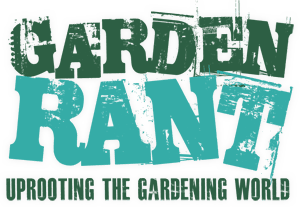

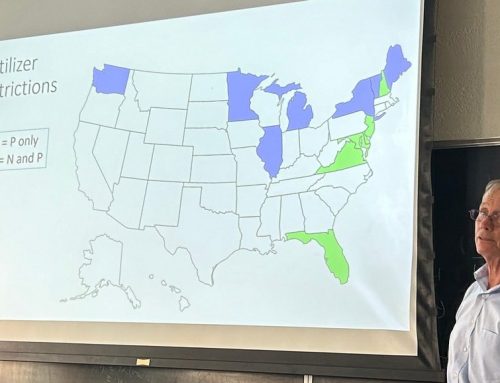
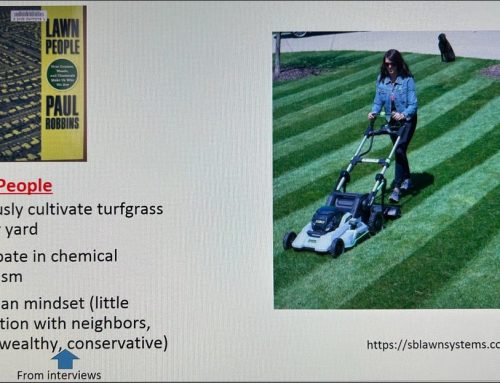
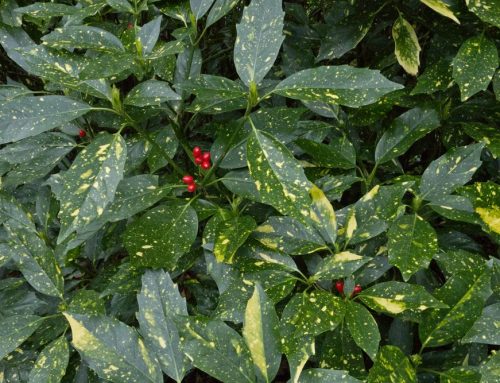
Good points, Elizabeth. I appreciate your perspective on how DEI can enhance our communities.
Clearly expressed. Thank you.
Thank you
Thank you for speaking for the middle ground on this issue. It’s a lonely, unpopular place to be now, on most issues. All the more reason to speak for moderation when given the chance.
I live in Oakland, CA, where inequality is extreme. Our draft Urban Forest Plan is trying to address the inequality of our forest canopy: treeless in the western portion of the city where most Black people live and forested in the hills where most White people live. I’m proud of our Urban Forest Plan and I am defending it against those who see it as an opportunity to destroy all the non-native trees in the hills and replace them with native trees, while the treeless flatlands go begging.
Elizabeth, thank you for pointing out the reality of those who live with few resources. Living in another”rust belt” community, I see the devastation that red-lining and the mortgage crisis created. Fortunately, the clear health benefits of tree canopies, and community gardens to combat food deserts are starting to take hold.
Hear hear, Elizabeth. Once our eyes are opened it is obvious to the untrained eye the difference between ‘rich’ and ‘poor’ neighborhood natural environments. And no, it’s NOT because “they don’t take care of it”. It started that way, deliberately. And as another said, thanks for the middle ground. We centrists all need to make our voices heard amongst the crackpots.
This rant is so much better than the academic paper we were presented for yesterday. This rant makes sense
The academic paper sounded like somebody ( maybe a AI robot ) preaching from their ivory tower
The paper upon which Susan and her fellow students were forced to spend a precious amount of classroom time was fundamentally flawed. Though there was an interesting paradoxical point to be argued, it was strewn with racist language that has become inexplicably acceptable through all aspects of culture now, and is consistently used by advocates of DEI who see our skin color before all else. I find that reprehensible and will continue to speak out about it in the strongest possible words – particularly when I see it invading a space so sacred and beautiful and uniting as horticulture.
The efforts of gardeners and politicians to bring greening and horticulture to under-served areas and urban food deserts is incredibly worthwhile – particularly those efforts focused on education and the support of culture and community. As you say, it is a long process, as I experienced myself when fighting for a community garden in my last city. To recognize a terrible practice such as red-lining, abolish it, and moving forward work with community leaders to build stronger, healthier families, cities and better schools is something upon which I think we can all agree, even if we have different thoughts about how to achieve it. Discussing people’s yards and horticultural practices in terms of their whiteness — thus perpetuating racism with more racism — is not one of them.
I too feel lucky to be a part of GardenRant, and take exception to the way in which you highlight the skin color of our writers. We are in no way exclusionary. We are not here because we are white. We are not even here because of where we live. We are here because we are good writers, male and female, with strong, diverse, opinions that cover many aspects of gardening, and have the courage to express those opinions. The last three posts this week demonstrate this admirably.
We all come at horticulture from very different life experience and backgrounds, and the great diversity of thought represented by our writers is no better expressed by this exchange right here. To expect that someone will think a certain way, act a certain way, or have a certain background by virtue of their skin color is racist. And no amount of saying that it isn’t changes that fundamental truth. -MW
Amen Marianne. Thank you for a thoughtful commentary.
Yes! Thank you!
Agree – Thank you
Amen, Marianne, I say Amen. The previous post turned my stomach and this one went beyond that. You are so right, calling people out for “being white” only pushes the agenda. And I’m annoyed that it had to be pointed out that all of the Garden Ranters are white. Seriously? If someone feels that strongly about it, I have a suggestion: go out and find a passionate, talented, writer/gardener who is NOT white and invite them to rant. There, I solved your problem for you. I found it outrageous that not even the sanctity of the garden and the work it takes to maintain one are immune from this complaining. Please don’t get me wrong, I know that there are inequities in this world, I know that the founding of this country has seriously shameful elements. I suggest that people who feel strongly about it become involved at the local level and try to effect change. And while they are at it, please stop bringing race and class and “privilege,” (a word of which I have grown tired) into each and every aspect of life. I come here to Garden Rant to broaden my horizons about gardening as well as writing; not to be lectured. Gardening should have the effect of uplifting each and every one of us. Period.
It’s very unfortunate that this is all getting so hostile. I understood when I subscribed to GardenRant that crankiness and strong opinions were allowed but honestly, I get enough of that reading the comments section of the New York Times. I am going to reread Ben’s recent post on the color yellow.
Thank you so much! So succinctly stated. It doesn’t matter what the current label is, social justice is always a good thing.
I especially like these lines of yours: “Diversity has to be cultivated. It takes work to undo the damage of centuries and the discrimination that continues to make its presence all too importunately known.” Just as we know how hard it is to turn around climate change, deforestation, or other environmental problems that have been entrenched in our culture, so it takes intentional work and valuable resources to undo our racist systems and to repair the harm they’ve caused. As with environmental issues, there won’t always be agreement about the best way to do it, but it still needs to be done.
Thank you for being on the right side of history, and trying to help right a longstanding injustice. It’s shameful thing that gets repeated in many American cities – poor neighborhoods end up treeless, and rob residents of the many benefits that a green landscape brings. It’s important for mental health as well as physical health to have proximity and access to trees.
There’s a big opportunity in “decaying” cities like Buffalo, Detroit, Cleveland, and elsewhere. Where land is cheap and there are many vacant lots, those lots are ripe for transformation in to something that can benefit residents now and in years to come. Greenspace pays dividends in community engagement, mental health, and physical health.
I’m excited to read posts from you in the future about how Buffalo works on this issue.
Thanks, Sarah! Buffalo actually got a sizable grant – 60 million – for tree planting. That program will have to be executed very carefully, with ongoing care built in. I write about this kind of thing for the Buffalo News quite a bit, though rarely here, as I don’t want to overestimate people’s interest! 🙂 As for the vacant lots, sadly, the city is hanging on to these. Actually I wish they would have kept the buildings up so they could be rehabbed. We have a huge housing shortage, like everywhere.
“Racism” is, by definition, one-way, from the group with power (white people) toward tose they consider “other.” BIPOC people can be prejudiced but not racist. Essentially, white person cannot be the victim of racism in the U.S. Period. Saying that white people write from a white perspective is not racist, by the definition of racism. Equally, pointing out the existence of racism and the need for equity is not “racism against white people” or “reverse racism.”
Claiming that discussions of race and equity are “divisive” or “hostile” is a common strategy used by white people to try to blame their own discomfort with the issue on others and avoid uncomfortable truths. It’s not at all surprising that people who aren’t offended by the politics and controveries brought up in Rants regarding lawns and climate change suddenly find a discussion of racism in gardening too controversial and too divisive. It’s uncomfortable and we’d rather change the subject.
I understand; I’ve been there. I’ve avoided discussions of our racial history because they “made me feel attacked.” I’ve called affirmative action “reverse racism.” But I finally had to acknowledge that I actually do benefit from being white in very significant ways, my BIPOC neighbors do experience significant harm solely based on the color of their skin, and many of the ways I was taught to see the world are inherently racist even though they’re common American views. That makes me complicit in a harmful system, and my ethics compel me to say something if I see or hear fellow white people denying or abusing our shared privilege.
If you think the skin color of a gardener or a Rant writer is irrelevant, this is my challenge: You can’t read or write *any* Rant without your race affecting your perspective; you can’t garden without your race affecting your perspective. White people can choose to ignore the impacts of racism most of the time, but that doesn’t mean it’s not there.
Saying that a person’s race influences or drives their every action, word, thought, etc., sounds pretty racist to me. “White people write from a white perspective….” okaaaaaay….sometimes I suppose, but what if a white person writes about weed control or how to create a container garden? What do those activities have to do with race? Do black people not care about weeds or make container gardens? What other immutable physical characteristics are relevant here? Can a person write about gardening from a blond perspective or a double-jointed perspective?
This is not to dismiss the history of terrible injustice in our country, but what does it have to do with whether I decide to grow squash or milkweed this summer? The obsession with race in every aspect of life is alarming and bizarre.
Also…all art and leisure activities can be described as privileged. Most of us — all races — had ancestors who were too poor to garden for pleasure or beauty. Thanks be to God that most of us aren’t so worried about feeding ourselves or our children that we can partake in a couple hours a week tending plants, for ourselves or for our communities. Either way, it’s a gift.
This is complete and utter hogwash. Racism is discrimination and prejudice against people based on their race or ethnicity. It’s not only one-directional. To say a white American cannot experience it is short-sighted at best and woefully ignorant at worst. There is no such thing as “reverse racism.” I have news for you: a person can write, and garden, and cook, and drive a car without “race” affecting their perspective. It’s not some pervasive, evil invader which controls our every move. Comments such as yours serve to promote racism and hate, rather than unity. Lest you make assumptions about me, I am of Appalachian, Native American, Black African, German, and English heritage.
“Racism,” just like every word in every language, means what the speakers of the language say it means at a particular time. Some words change their meaning very little over time, others can change quite a bit in a short time. Racism is in the latter category. It was uncommon to use “racism” in a way that included power, oppression, etc. as necessary elements in the 80-90s. It is becoming more common today. As evidence, compare the 10th edition (https://archive.org/details/merriam-websters-collegiate-dictionary-10th-edition/page/958/mode/2up) and the current online edition (https://www.merriam-webster.com/dictionary/racism?utm_campaign=sd&utm_medium=serp&utm_source=jsonld).
It’s also the case that most (but not all) people keep the definitions they learned in their 20s for the rest of their lives. The unfortunate result is people using the same word but talking past one another, typically along generational fault lines. Both sides consider the other’s definition of racism to be incomplete, incorrect, or even morally deficient. They are all wrong. These are words, not math equations.
Discomfort can spring from more mundane sources than “truth.”
Thanks for this comment, Ted. Since I was 21 (almost a half century ago) and in a milieu where my friends and I discussed political issues, I have defined racism as the oppression by those with power and privilege (even the poorest white person has, I believe, a certain kind of privilege) over any peoples of a race with less privilege. A parallel example, re classism, I don’t feel that a working class person being irked by the bad behavior of many wealthy people is classism or “reverse classism”. (Yes, I am working class and I do have a chip on my shoulder.) I still do not believe that the oppressed can oppress the oppressor and thus I don’t think reverse racism is a valid thing. Naively, I thought that concept was over in more enlightened society (wish I could think of a better word than enlightened) so am sad to see it entrenched among so many here in this microcosm of the gardening world. Dare I suggest a couple of books that might help clarify this: So You Want to Talk about Race? And Waking up White. The latter might be helpful because it’s from the POV of a white woman applied herself to learning about racism. Also the brilliant book Caste, which has been made into a film that I haven’t yet seen. And The Warmth of Other Suns. I could go on and on about great books on the subject of racism.
Thank you Skyler for your comments and excellent book recommendations particularly Caste. I recognize I need more education in this area as I carry older definitions from my college and professional years.
Another good book on this topic is How the Word is Passed by Clint Smith. Very powerful book that made a tremendous impact on me.
And I want to thank Susan and all the commenters for this discussion, along with Elizabeth’s post that added more nuance to the subject. Good going, ranters! Very stimulating and important conversations.
THANK YOU, Jenn! And thank you, Skyler! I get so annoyed when privileged white folks (of which I am one) get all upset about the truth and try to squirm out of it! Hooray Elizabeth for ‘getting’ it.
I think we need to start examining the politics of the flowers in Alice in Wonderland where they criticize her appearance (they think her hair is petals) Lets go for broke now that we have thoroughly politicized horticulture!
Don’t give the doctoral students any ideas!
Or news media
This country’s racist and exclusionist history began long before 1776. As a matter of fact, our genocidal history began the moment we set foot in America, which did not belong to us. Why is the simple fact that we still inhabit stolen land continually glossed over? If anyone is worried about white privilege, the appropriate start would be to pay land tax to those whose ancestral lands on which we garden, lawn or no lawn. In much of our area, these are Piscataway tribal lands, and Piscataway descendants still live and work and struggle here. Look it up, and put your money where your privileged garden is.
Thank you for your thoughtful comments Elizabeth. I’m a faithful reader in St. Helena, CA and your post made my day. Kindness and fairness.
Red-lining began as a financial term:
refuse (a loan or insurance) to someone because they live in an area deemed to be a poor financial risk. (Oxford)
It has been extended to include healthcare and further extended to include horticulture as defined above. In communities with limited funds hard choices have to be made particularly with increase rates of diabetes, heart disease and in my field particularly certain cancers tied to poverty levels. Access to financial service and healthcare are most critical in my opinion.
Thank you, Eliz, for pointing out where gardening and social justice/inclusion etc really do come together – in the serious, consequential ways you mention. (NOT whether someone has gotten rid of their lawn or posted a habitat sign – risible criticisms that undermine legitimate ones.)
Btw, my other course this semester is “Environmental Media,” where we spent two weeks on environmental racism, watching several documentaries and enjoying 4 meaty lecture/discussions on the topic.
Thanks, Susan, for not minding me glomming on to your post! But these are issues I work with frequently in my day job and I could not resist.
very well said. even perspectives that seem over the top can challenge us to look from another point of view.
Thank you, Elizabeth and commenters Kerry, Jenn, Sarah, Kathryn, Bev, Skyler…. It’s clear that issues of race and privilege make a lot of privileged people hostile and defensive! Just as discussions of the destructive effects of America’s lawn obsession and love affair with Asian and European plants make adherents to this aesthetic furious and blind to reality. Serious problems: social, cultural, economic, racial, environmental, and horticultural, need to be acknowledged, faced, and addressed for the good of all people and the ecosystem in which we all live.